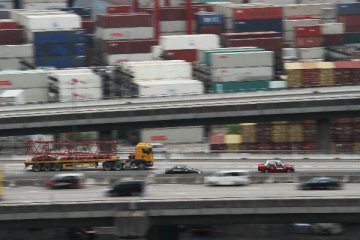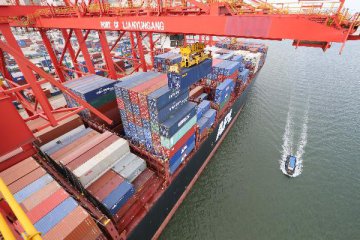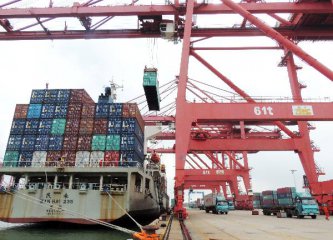
16 policy papers are launched by the State Council to support steady growth of foreign trade in recent three years. Are these policy papers effective?
Zhang Ji, assistant minister of the Ministry of Commerce (MOC), indicated on the regular press conference held by the State Council Information Office on Aug. 19 that recently, the MOC together with 22 departments, including the National Development and Reform Commission (NDRC) and the Ministry of Finance (MOF), evaluated the implementation of policies promoting steady growth of foreign trade through informal discussion with enterprises, field investigation, questionnaire and in-depth interview and etc. The State Council also has entrusted the Development Research Center of the State Council as an independent third party to carry out the evaluation.
Findings of the evaluation show that desired results have been produced, but there are also barriers and blind spots.
It is widely responded that the state has made unparalleled efforts in supporting the development of foreign trade in recent years. All government departments strive to reduce burden bore by enterprises. The implementation produces desired results on the whole. Improvements are mainly made in perfecting the sharing system for export rebates, strengthening the support of credit insurance, easing burden on enterprises, improving trade facilitation, speeding up the development of new forms of foreign trade, promoting innovative development of processing trade, intensifying import and underpinning the development of service trade.
As evidenced by the sharing of export rebates, the incremental portion is fully shouldered by the central finance from 2015. The move indeed accelerates export rebates and conducts classified management over exporting enterprises. Export rebates of category-I enterprises can be finished in just two working days.
According to Zhang, “driven by joint efforts in recent three years, China sees increasingly improving structure and quality of foreign trade. China’s share of world exports increases year by year from 11.2 percent to 13.8 percent, making China always the largest country in terms of trade in goods. China’s foreign trade extends its sound performance this year.”
But imperfections, such as imperfect supporting policies and unsatisfactory results, are also found during investigation.
Long Guoqiang, deputy director of the Development Research Center of the State Council, remarked that many policy difficulties await settlement. For instance, the difficulties and high cost of financing faced by enterprises, the long cycle of export rebates and the new supporting measures required by the piloting new forms of cross-border e-commerce. The barriers of policy implementation should be further removed. The coordination among departments and areas as well as relevant supporting measures should be further improved. Blind spots still exist in supervision. For example, some commercial enterprises take the opportunity to raise charges, thus the operation cost of foreign trade enterprises is increased. There are also enterprises illegally wangle export rebates through trans-regional acquisition and agency.
Zhang cited the problems found during the implementation of policies at the press conference. Unreasonable charges still exist; difficulties and high cost of financing are not eased; trade facilitation awaits improvement; export order needs to be further standardized; the differentiation policies for processing trade should be further improved; policies for new forms of foreign trade are expected to be more creative.
In response to above problems, the MOC has come up with key work list and will work together with relevant departments and local governments on the implementation. The key work listed includes further clearing the charges, easing the difficulties and high cost of financing, improving trade facilitation, conducting more research about differentiation policies for processing trade, enlarging the scope of cross-border e-commerce comprehensive piloting areas and market purchasing, continuing to build a legalized business environment, and giving free scope to two-way investment in promoting foreign trade.
Translated by Jennife






















Latest comments